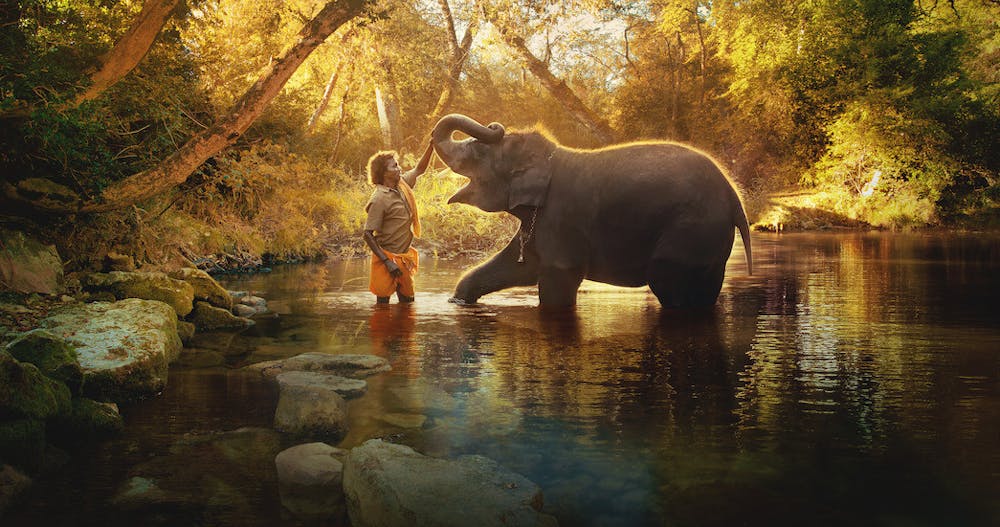The 95th Academy Awards became a historic moment for the Indian film industry when “The Elephant Whisperers” became the first documentary produced in India to win the Academy Award for Best Documentary Short Film.
This Tamil-language documentary released in December 2022 has become a point of pride for India, which celebrated the documentary’s win — as well as that of “Naatu Naatu,” a song from the Indian Telugu-language movie “RRR” which won the Academy Award for Best Original Song.
Running just 41 minutes, “The Elephant Whisperers” focuses on Bomman and Bellie, a caretaker couple who are members of the Indigenous Kattunayakan Tribe, and their bond with two adopted orphan elephants, Raghu and Ammu. The film illustrates the harmonious intersection between Indigenous knowledge systems, nature and religion.
The documentary was shot at the Theppakadu Elephant Camp, which is in the Mudumalai Tiger Reserve in Tamil Nadu, 30 minutes from where director Kartiki Gonsalves grew up. Gonsalves’s personal connection with the forest is apparent throughout the documentary, as is the connection between the caretakers and Raghu. Watching Bomman and Bellie feed him milk, bathe him and play football with him can only make a viewer cheer for the happiness of this unique family.
Gonsalves, thanks to her previous experience working as a natural history photographer, captured some of the rare biodiversity of the nearby forests in the film’s cutaways, with transitional shots of different animals and birds that help the viewer appreciate the land. This feeling is accentuated by the optimistic and playful background score composed by Sven Faulconer.
The intensity of the bond between the elephant and the caretakers becomes clear in the documentary’s climax when Raghu is assigned to different caretakers more experienced with adolescent elephants. Audiences see the separation anxiety and pain Bomman and Bellie both feel, watching their grief-ridden, sleepless nights and their loss of appetite.
Apart from caretaking, the documentary also shows the religious integration of elephants within the community. From decorating the elephants’ trunks with beautiful artwork to including them in the Kattunayakan Tribe’s religious ceremonies, the audience sees a community grateful for the animals, unlike others that view elephants as crop destroyers. In one scene, Bomman, both a priest and a mahout, says “God and elephants are one for me,” highlighting the fact that without either, he would have nothing to eat.
The glimpses of Indigenous practices are hidden gems in the documentary. Audiences watch Bomman and his companions climb steep and rocky hills to get honey from bee colonies. Kattunayakan women sing and dance around a fire — leaving viewers curious about the lives and practices of the community.
While the documentary is optimistic about humans and animals living in harmony, it briefly covers the conflicts that arise due to their proximity. Raghu’s mother, who died due to electrocution from a man-made fence while searching for food in nearby villages, exemplifies this tension. “This bittersweet aspect of the story was crucial to what I wanted to say,” Gonsalves said in an interview with The Guardian.
The film also highlights traumatizing tiger attacks that many villages near the forests face. Bellie opens up about her past and talks about her first husband, who was killed by a tiger. This incident caused Bellie to feel fearful of nearby wildlife — but coming from the “heart of the forest,” she maintained a belief that the well-being of the forest and ecosystem is important.
“The Elephant Whisperers” earned its bragging rights well before the Oscars —and its Academy Award only served to further cement its reputation. From its cinematography to the story, the documentary captures its viewer’s attention instantly. The bite-sized film peeks into an ecosystem where humans coexist peacefully with nature — a more sustainable community that could serve as inspiration for the rest of the world.





